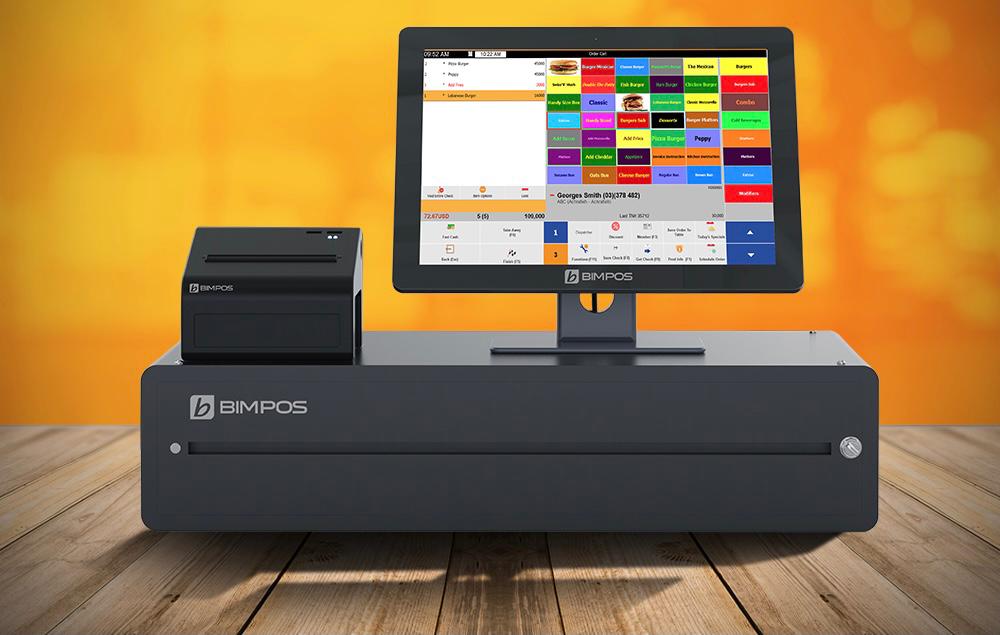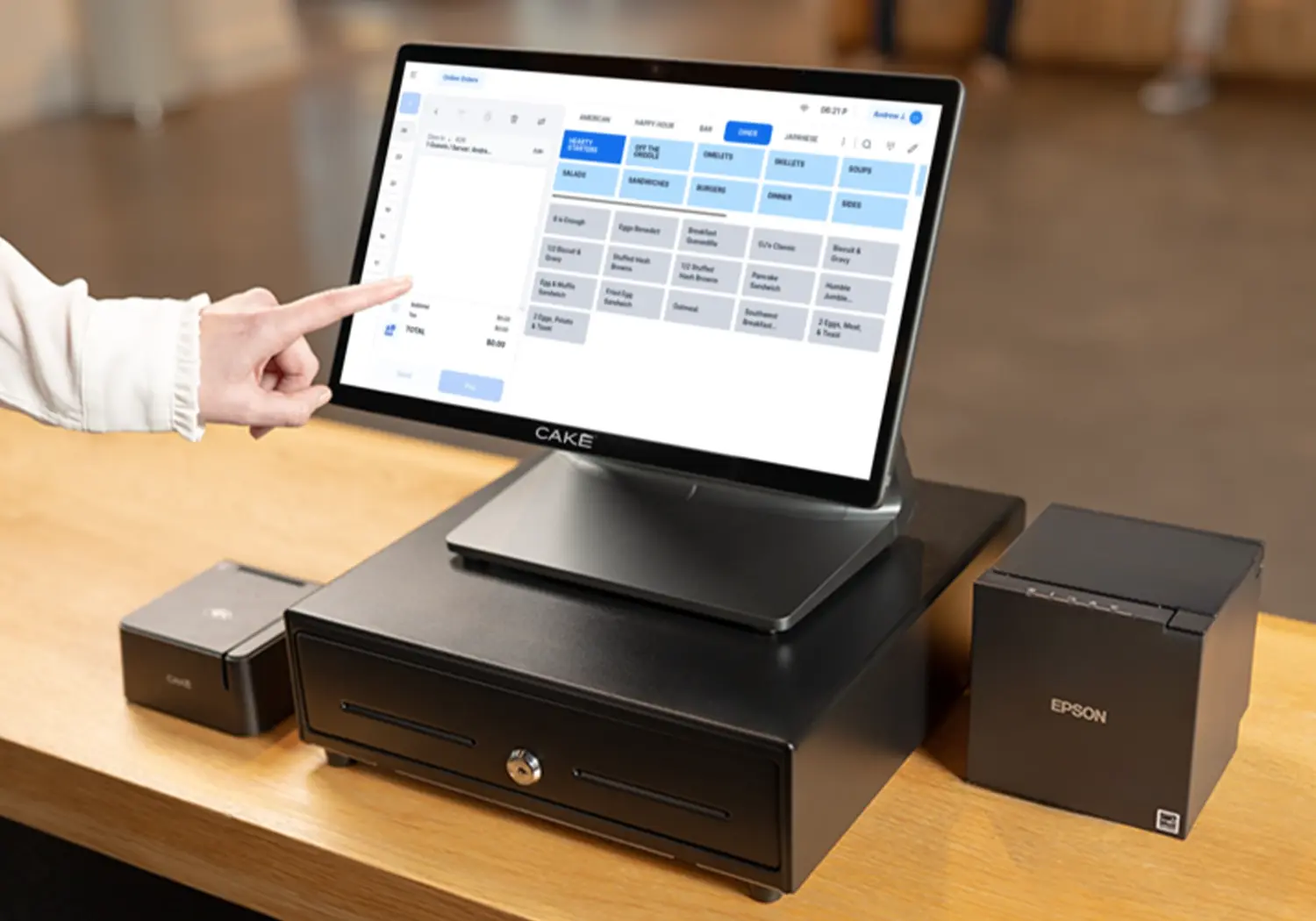Not known Facts About Pos System For Small Business
Not known Facts About Pos System For Small Business
Blog Article
Point Of Sale Systems for Beginners

Point of Sale Software: Retail Point-Of-Sale Solutions Streamline Transactions
The 45-Second Trick For Restaurant Pos

Hardware Elements of a Point of Sale System What makes a POS system tick? It's not simply software; the hardware plays a starring function. Think of it as the check here body to the software application's brain. Without the ideal hardware, even the most advanced POS software is just a quite face. Necessary POS Hardware So, what are the must-haves? Let's simplify. The central processing system, often a computer system or tablet, is the heart of the operation. The monitor or touchscreen show permits staff to engage with the system. A barcode scanner speeds up the checkout process. Keep in mind the days of by hand getting in each code? The reliable receipt printer provides customers with a record of their purchase. A money drawer keeps your cash safe and organized. A card reader permits consumers to pay with credit or debit cards. Diving Deeper: Beyond the Fundamentals However wait, there's more! Depending upon your service, you may require customized hardware. For example, a dining establishment might integrate kitchen area printers to relay orders, while a store may use label printers for item tagging. Ever wonder how your local bakeshop instantly prints those delicious-looking labels? Selecting the Right Hardware: A Balancing Act Choosing the ideal hardware isn't simply about buying the most costly devices. It's about discovering the sweet spot between performance, resilience, and spending plan. A little service just beginning out might select a more fundamental setup, while a high-volume retailer will require robust, high-performance makers. Is it much better to purchase brand-new or utilized? Consider your options thoroughly. A new system offers the most current innovation and guarantee defense, however a refurbished system can conserve you cash. The Future of POS Hardware What does the future hold? Anticipate to see even more integration with mobile phones, biometric scanners for staff member authentication, and advanced analytics control panels displayed on bigger, clearer screens. Think of a world where inventory is immediately upgraded in real-time as products are scanned-- a world where you can track your best-selling item from anywhere in the world. The possibilities are unlimited, and the hardware is continually evolving to fulfill the demands these days's organizations. Are you all set to upgrade your point of sale system?
Software Characteristics and Capabilities: The Heart of Your POS System
Ever view an experienced barista move through a hectic morning rush? Their secret isn't just caffeine; it's a smooth dance with their POS system. The software is the conductor of your organization symphony, managing everything from sales to stock. However what notes should you be listening for? What abilities genuinely matter in today's market?
Stock Management: Beyond Counting Beans
Forget spreadsheets that haunt your dreams. Modern POS systems use real-time stock tracking, informing you when your stock of artisanal coffee beans dips precariously low. Think about it as a digital guardian angel, avoiding those awkward "Sorry, we're out!" moments to clients. What if you could also anticipate demand based on historic data? Many systems now provide forecasting tools, a powerful weapon against overstocking and lost sales. This helps prevent the predicament of lacking popular items or accumulating excess stock of slow-moving products, both of which can constrain capital and area.
Sales Reporting and Analytics: Translating the Data
Sales data is the brand-new gold, and your POS system is the miner. Forget just understanding just how much you sold today. Dive deep into the information to uncover trends, determine your best-selling products, and understand customer habits. Which menu item pairs perfectly with the day-to-day special? Which promo resonated most with your clients? These insights are not simply intriguing; they're actionable intelligence. Without dependable sales reporting, browsing the complexities of company decision-making becomes like sailing without a compass, increasing the possibility of missteps and missed out on chances.
Consumer Relationship Management (CRM): Structure Bridges, Not Walls
Remembering a regular customer's name and favorite order is charming, however scaling that individual touch is difficult. POS systems with CRM capabilities enable you to track customer purchase history, preferences, and even birthdays. Imagine immediately offering a discount on their birthday-- a small gesture that fosters commitment and encourages repeat service. There is the potential snag of poor data quality, which can lead to incorrect client profiles and ineffective marketing efforts.
Payment Processing: Enhancing the Deal
The checkout experience can make or break a sale. Smooth combination with different payment approaches-- charge card, mobile wallets, even copyright-- is non-negotiable. Can your system manage split payments? Does it provide protected tokenization to protect client information? A clunky payment process is like hitting a sour note in your service symphony, possibly interfering with the whole performance. Guaranteeing compatibility with progressing payment technologies and adherence to security requirements are critical for preserving consumer trust and operational effectiveness.
Worker Management: Keeping the Group in Sync
From clocking in and out to managing permissions and tracking efficiency, worker management includes simplify operations and improve responsibility. Is scheduling a headache? Numerous POS systems offer incorporated scheduling tools, enhancing staffing levels based upon forecasted demand. A typical obstacle that is frequently neglected is the difficulty of integrating staff member management performances with payroll systems, which can lead to mistakes and inefficiencies in wage computations.
Advanced Features: Leveling Up Your Operations
- Table Management: Suitable for restaurants, this feature allows you to visualize your dining room, track table status, and handle appointments.
- Loyalty Programs: Reward your finest consumers and motivate repeat service with integrated loyalty programs.
- Online Purchasing Combination: Perfectly incorporate your POS system with online purchasing platforms to broaden your reach.
Picking the ideal POS system is about more than just functionality; it has to do with discovering a partner that can grow with your organization. Consider your present requirements, expect future growth, and do not hesitate to ask the hard questions. The ideal software can transform your organization from a disorderly cacophony into an unified masterpiece.
Industry-Specific POS System Applications
Consider the regional bakery, busy with morning consumers craving fresh croissants. A generic POS system might deal with deals, but can it manage complicated dishes, track active ingredient stock, or instantly adjust production schedules based upon sales data? Most likely not. That is where the charm of industry-specific POS systems shines.
Restaurants and Hospitality
For bustling dining establishments, speed and precision are vital. How many times have you seen servers handling orders, adjustments, and splitting costs, all while attempting to provide excellent service? A restaurant POS system streamlines these processes, permitting table management, kitchen order tickets, and even online ordering combination. These systems often include functions like ingredient-level stock tracking, vital for managing food expenses and decreasing waste. Ever question why your preferred meal is in some cases unavailable? It may come from an absence of correct stock management.
- Table Management
- Kitchen Area Order Tickets
- Online Purchasing Integration
- Ingredient-Level Inventory Tracking
Retail Solutions
Retail, with its diverse inventory and client interactions, requires a various set of tools. Imagine a store clothes store having a hard time to keep track of sizes, colors, and seasonal collections using a fundamental checkout system. An industry-specific retail POS system provides features like barcode scanning, customer loyalty programs, and detailed sales reporting. These systems can even integrate with e-commerce platforms, providing a smooth omnichannel experience for consumers. Did you know some retail POS systems can forecast future sales trends based on historical data? Now that is effective!
The Dangers of a Mismatch
Selecting the incorrect POS system can develop significant operational hurdles. A clothing shop using a restaurant POS, for example, would discover it unsuitable for handling inventory with sizes and colors. The absence of correct reporting and analytics could lead to mistaken acquiring choices and lost profits. The outcome might be comparable to attempting to fit a square peg in a round hole.
Secret Factors to consider
Choosing an industry-specific POS system requires careful assessment. Believe about your service's distinct requirements and functional workflows. Does the system integrate with existing software? Does it offer the required reporting abilities? Is it scalable to accommodate future development? A well-chosen POS system is not simply a transaction tool; it's a strategic possession that can drive effectiveness, improve customer fulfillment, and ultimately, boost your bottom line. Remember, it is an investment in your organization's future, not simply an expenditure.
Security Factors To Consider for Point of Sale Systems
Ever heard the tale of the mom-and-pop shop that lost everything due to the fact that of a single, overlooked security defect in their POS system!.?. !? It's a cautionary tale, and it highlights a crucial element typically overshadowed by the allure of elegant functions and streamlined operations. The reality is, a POS system is only as excellent as its security. What good is a system that crunches numbers in a flash if it enables crooks to swipe client's information just as quickly?
The Vulnerability Minefield
The digital landscape is a battlefield. Every POS system, no matter size or sophistication, is a possible target. Are you really got ready for the threats lurking around the corner? The real pinch comes when you discover that your outdated software application has a gaping hole that hackers can make use of, turning your company into an unwitting accomplice in identity theft. The trouble is that hackers are crafty and are always altering their techniques.
Common Security Spaces and Professional Tips
- Weak Passwords: "Password123" isn't sufficing. Usage strong, special passwords for all POS system accounts and change them regularly. Two-factor authentication is a must.
- Unsecured Networks: Your Wi-Fi resembles leaving the front door open. Secure your network with strong file encryption (WPA3 if possible) and consider a different network for your POS system.
- Out-of-date Software: Software application vendors patch security holes all the time. Stopping working to update resembles welcoming problem. Set up automatic updates or schedule regular maintenance.
- Employee Training: Your personnel is your very first line of defense. Train them to recognize phishing attempts, secure passwords, and report suspicious activity.
Data File Encryption: Your Shield Against the Dark Arts
Believe of information encryption as a secret code. It scrambles sensitive details, like credit card numbers, making it unreadable to unauthorized users. Without file encryption, your clients' financial information resemble sitting ducks, ripe for the selecting by cybercriminals. It's not practically protecting your clients; it's about securing your reputation and avoiding large fines.
PCI Compliance: The Rulebook You Can't Overlook
If you accept charge card, you're bound by the Payment Card Market Data Security Requirement (PCI DSS) It's a set of security requirements designed to secure cardholder information. Failing to comply can result in fines, charges, and even the loss of your ability to process credit card payments. It's a headache, yes, but it's an essential one. Think about PCI compliance as the cost of doing organization in the digital age.
Consider this: every deal processed through your point of sale is a potential entry point for destructive actors. By executing robust security procedures, you're not simply safeguarding your company; you're securing your clients' trust and guaranteeing the long-lasting viability of your operations. The security of your POS system isn't just a technical problem; it's a company vital. It requires consistent caution, proactive steps, and a commitment to remaining ahead of the curve.